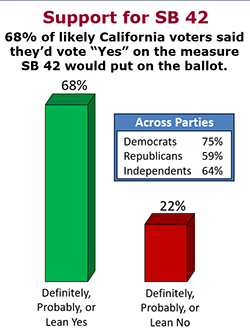The struggle to pass state legislation that would require
straightforward disclosure of the true sources of campaign
advertising shows the extent to which the status quo will
go to resist reform.
Assembly Bill 700, which faces a critical committee hearing
in the state Capitol on Wednesday, is designed to require
the top three donors of advertising on ballot measures to
be clearly identified.
Moreover, it would require the original sources of the
contributions -- not just the name of the front group
created to blur over the donor's identity -- to be
identified.
"Californians are currently being influenced from afar by
these vague and innocently named committees," said
Assemblyman Marc Levine, D-San Rafael, who co-authored
AB700 with Assemblyman Jimmy Gomez, D-Los Angeles.
Indeed, as we have observed many times, it has become
almost standard procedure for various interests -- from
right and left, business and labor -- to conceal their
motivations and sources of funding by hiding behind
innocuous-sounding or even blatantly deceptive organization
names.
Regrettably, but not surprisingly, the incumbents in
Sacramento -- who tend to benefit disproportionately from
special-interest spending -- want no part of such a
requirement.
"We need to begin somewhere," Levine said of the pragmatic
reason for limiting the law to ballot measures.
A second Levine measure, AB1494, faces even steeper odds in
the Assembly Elections Committee. It would require
independent expenditure committees to pay fees -- based on
the amount they spend -- to help fund civic engagement,
voter registration and voter turnout programs.
Levine called the explosion of unaccountable big-money
campaigns a "root cause of voter disgust and
disenfranchisement with the elections process." Outside
groups spent more than $640 million on state ballot
measures in 2012 and 2014.
The U.S. Supreme Court has affirmed their right to spend
unlimited amounts, as a matter of free speech. But it did
not give them a right to hide their true identity.





